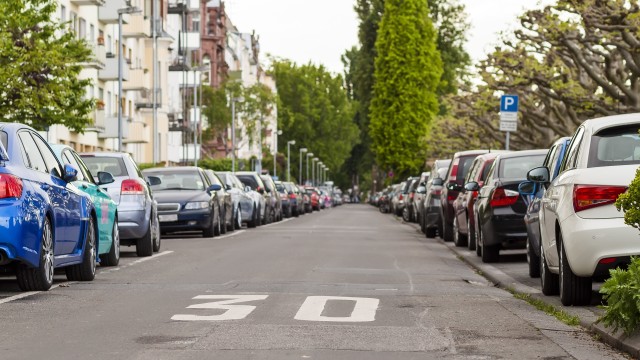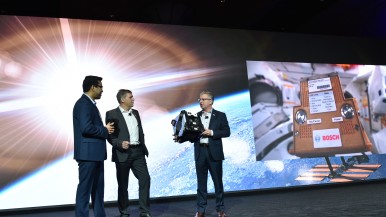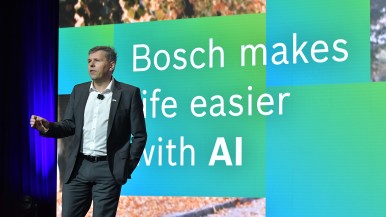Reutlingen - Traffic that is looking for parking and the associated emissions, parking violators and unevenly utilized parking lots presents countless challenges for cities. The new Bosch Parking Lot Sensor solves these issues and makes it possible for cities to efficiently manage parking spaces and therefore improves the quality of life in cities.
Bosch Connected Devices and Solutions GmbH was founded in 2013 and is a fully owned subsidiary of Robert Bosch GmbH. The company was set up to design, develop and market innovative connected devices and tailor-made solutions for the Internet of Things. Our competency in electronics, sensor technology and software enable new business models for global markets. Bosch Connected Devices and Solutions is headquartered in Reutlingen, Germany. In 2015 Bosch Connected Devices and Solutions opened offices in Chicago, USA and Shanghai, China, in 2016 a sales office in Singapore was opened.
For more information, go to www.bosch-connectivity.com
The Bosch Group is a leading global supplier of technology and services. It employs roughly 417,900 associates worldwide (as of December 31, 2024). According to preliminary figures, the company generated sales of 90.5 billion euros in 2024. Its operations are divided into four business sectors: Mobility, Industrial Technology, Consumer Goods, and Energy and Building Technology. With its business activities, the company aims to use technology to help shape universal trends such as automation, electrification, digitalization, connectivity, and an orientation to sustainability. In this context, Bosch’s broad diversification across regions and industries strengthens its innovativeness and robustness. Bosch uses its proven expertise in sensor technology, software, and services to offer customers cross-domain solutions from a single source. It also applies its expertise in connectivity and artificial intelligence in order to develop and manufacture user-friendly, sustainable products. With technology that is “Invented for life,” Bosch wants to help improve quality of life and conserve natural resources. The Bosch Group comprises Robert Bosch GmbH and its roughly 470 subsidiary and regional companies in over 60 countries. Including sales and service partners, Bosch’s global manufacturing, engineering, and sales network covers nearly every country in the world. Bosch’s innovative strength is key to the company’s further development. At 136 locations across the globe, Bosch employs some 86,900 associates in research and development, of which nearly 48,000 are software engineers.
Additional information is available online at www.bosch.com, www.iot.bosch.com, www.bosch-press.com.









